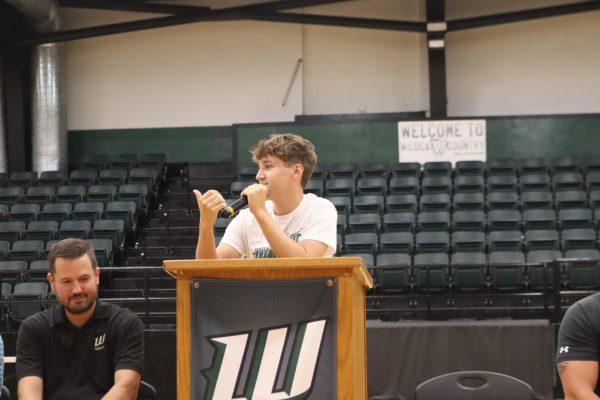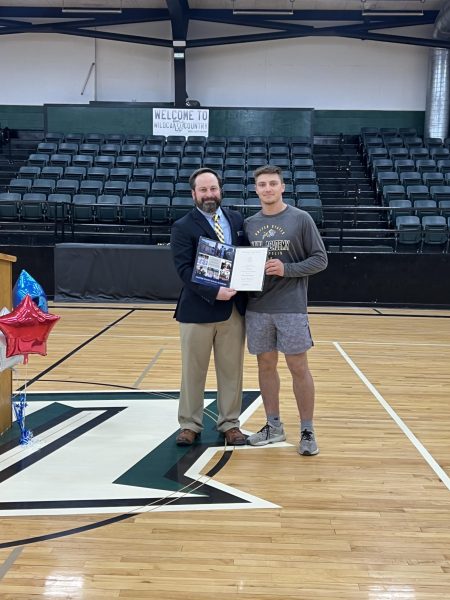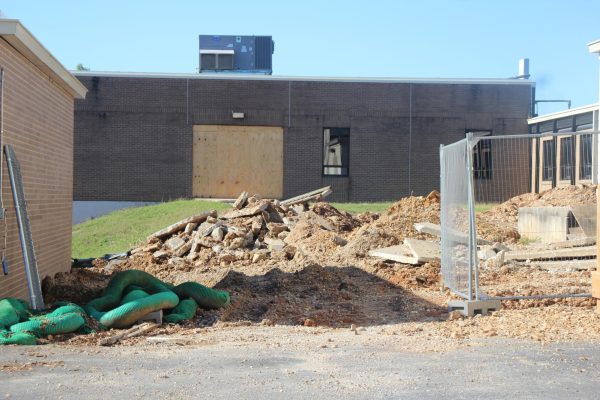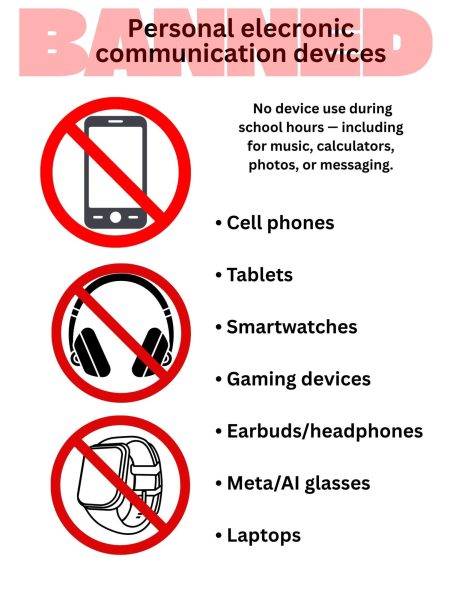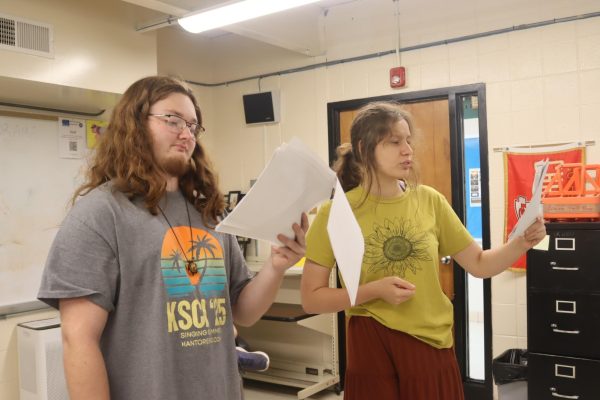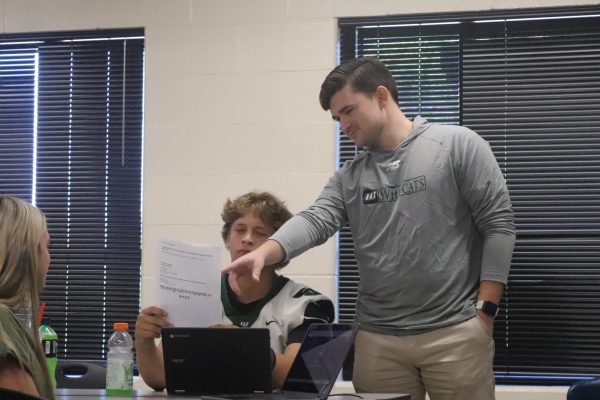Students report bullying is a school-wide problem
Bullying has become covert. Much of it goes unnoticed and on the web, however students seem to be aware that bullying is still a problem.
Most Warsaw students report they think bullying is a problem at school and know someone who has been bullied, and just over half of those polled claim they have been bullied at school.
“I think bullying is a big issue in our school and adults and peers don’t see it,” said freshman Hannah Chapman. “I think bullying will be around forever because people are not willing to change for the better, but we can help prevent it. I don’t think age makes a difference, people will be bullies or victims at any age. I think it’s worse in boys because they can be hurtful and rude towards girls. Its worse online because everyone can see the hate and you really can’t stand up for yourself.”
Out of 153 people surveyed in a Wildcat survey, 77 percent of them said that there is a bullying problem in the school, 52.6 percent of respondents said that they have been bullied at school. In addition, 84.9 percent of students said that they know of someone who has been bullied.
Just over 20 percent of students polled said they have actually bullied someone. Students say that bullying will be around forever because there will always be social interaction.
Much of the data collected in the Warsaw High School survey shows the problem to be more significant at WHS than the Benton County average. According to the 2014 Missouri Student Survey of 286 Benton County youth, grade 6-12, conducted by the Behavioral Health Epidemiology Workgroup, 36.8 percent of students reported being bullied on school property in a year. In addition, 24 percent were in a physical fight. Just over 19 percent reported having posted something online or sent a text that might embarrass or hurt another student in the past three months and nearly 30 percent of students reported someone posted something online or sent a text that embarrassed or hurt them. All of these statistics from Benton County are above the state average.
Many Warsaw students said they do recognize a bullying problem in the school.
“I think we do have bullying in our school, because people don’t really understand what it is.” said teacher Dustin Daniels. He has set up a group for students, staff members, and for family members. Its a group that teaches you what bullying is, how to handle it, and how to prevent it. It also teaches about other school problems that students and families might have, anyone can attend.
“I personally think there is a bullying problem in Warsaw, it’s easy for rumors and stuff like that to spread easily in a small town,” said sophomore Blake Broderson. “I do what I can, most bullying isn’t done in the middle of a school, so I can’t really call anybody out for punching another kid in the face or something.”
Students say that bullying happens more online than anything because its all through the phone or computer. They don’t have to say something to that person’s face and they can’t fight back.
“I think that girls are worse for bullying because thats just how they are,” said senior Luke Spry. “Its worse online because you can’t say anything to their face so they can’t fight back.”
“I think we have bullying in our school because people want to make themselves look better. Its worse in girls because they take things more seriously,” said sophomore Rebecca Letcher.
People don’t realize that they could be bullying by just messing around. According to the 2006 Missouri School Boards’ Association, the definition for bullying includes, but is not limited to: physical actions, including violence, gestures, theft, or damaging property; or threats of retaliation for reporting such acts. Bullying may also include cyber bullying or cyber threats. Cyber bullying is using the internet to send bad messages, emails, or posts, to put out a harmful message. Cyberthreats are online posts, emails, or messages that raise concern about violence against other people, suicide or self harm.
“We do have bullying in our school because bullying occurs all over around the world. It happened more online because people are more open about it because they aren’t face to face,” said sophomore Kylie Guyette.
However, not every student is aware that it is a problem.
“I don’t think we have a bullying problem in our school because I personally don’t know of anyone getting bullied. Plus, I think the majority of students at Warsaw would stick up for the person being bullied, physically or verbally,” said sophomore Ashlyn Yoder. “I think of bullying as singling someone out because of difference and either physically hurting/annoying them or being verbally mean. Sometimes I think things are taken as bullying when they’re not, and others real bullying is overlooked as teasing. I think that as long as I stand up for those who need help, I’m making a difference.”
“I don’t think we have a problem with bullying, its mainly just people messing around,” said sophomore Devin Coke. “It can get worse with age or it can get better depending on how it was handled at a younger age.”
According to Pacer National Bullying Prevention Center, (www.pacer.org), “Bullying hurts, humiliates, or harms another person physically or emotionally. Those targeted by the behavior have difficulty stopping the action directed at them and struggle to defend themselves. Bullying causes school avoidance, and higher rates of absenteeism, decreases in grades, inability to concentrate, loss of interest in academic achievement, and can increase dropout rates. It can causes physical and mental health problems as well, such as, Headaches and stomach aches, sleeping problems, low self-esteem, increases fear or anxiety, depression, and posttraumatic stress.”
The National Education Association says to prevent and stop bullying people should, “Pay attention, dont ignore it, when you see something – do something, remain calm, deal with students individually, don’t make the students involved apologize and/ or shake hands on the spots, hold bystanders accountable, listen and don’t prejudge, get appropriate professional help, and become trained to handle bullying situations.”
Everyone around the world can help stop or prevent bullying by just taking action and by stopping bullying at the spot. When you see someone being bullied, take action, call or go talk to a teacher, a family member, or any adult that can do something about it.
Bullying Survey – 153 responses
Have you ever been bullied at school?
Yes- 52.6%
No- 47.4%
Do you think there is a bullying problem at this school?
Yes 77%
23%
Is bullying worse in person, or on the internet, or the same?
In person- 22.4
On the internet- 25%
The same- 52.6
Do you know someone who has been bullied?
Yes- 84.9%
No- 15.1%
Have you ever bullied someone?
Yes- 20.4%
No- 68.4%
Id rather not say- 12.5
What kind of bullying have you experienced or seen?
Physical- 51.3%
Threatened- 61.2%
Name calling- 84.9%
Online- 71.7%
Property damaged or stolen- 47.4%
None at all- 8.6%
Other- 4.6%
Do you think the school is unsafe for some students?
Yes- 50.7%
No- 49.3%
Do you feel comfortable reporting bullying?
Yes- 71.7%
No- 28.3%

Mykal Albers is a junior and she has been in journalism for two years. She likes journalism because it gives her a chance to talk to people that she doesn’t...


